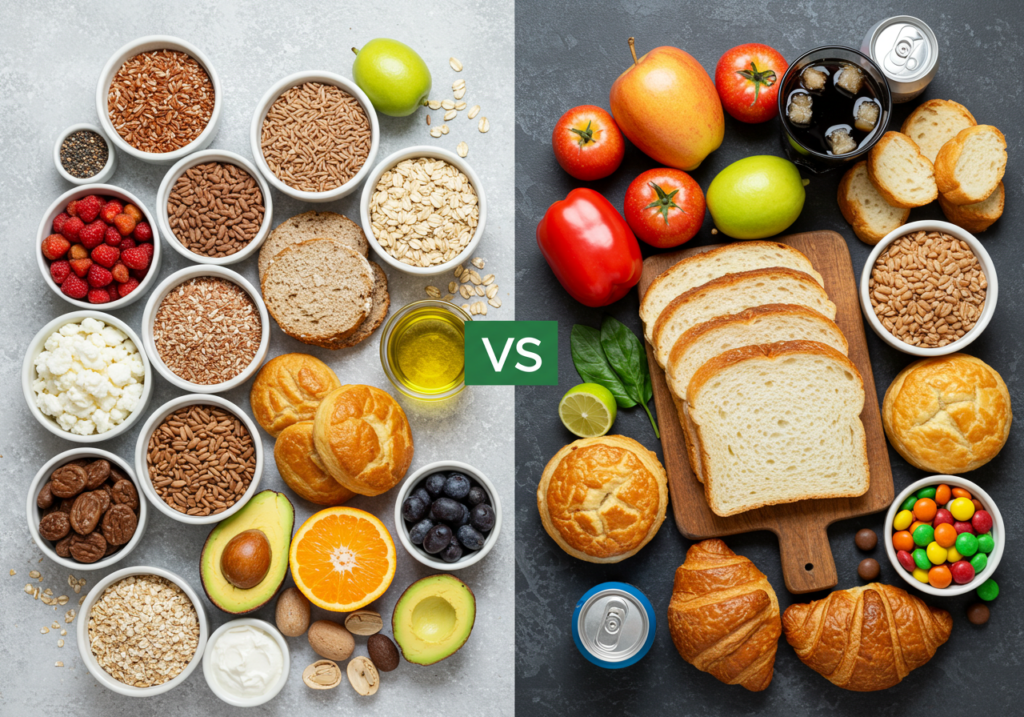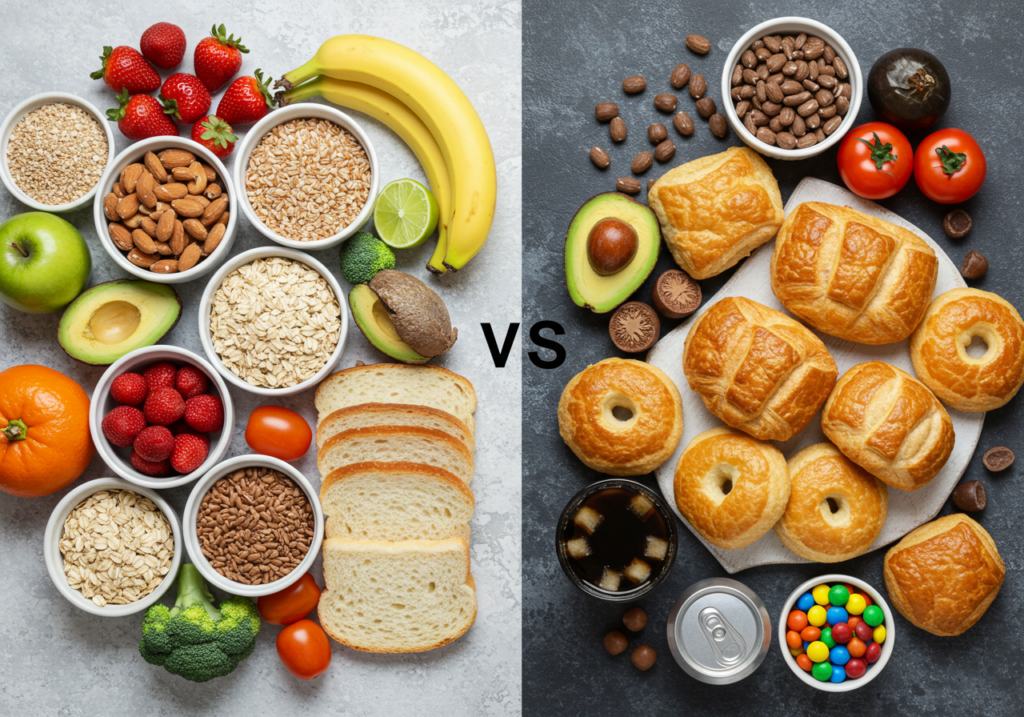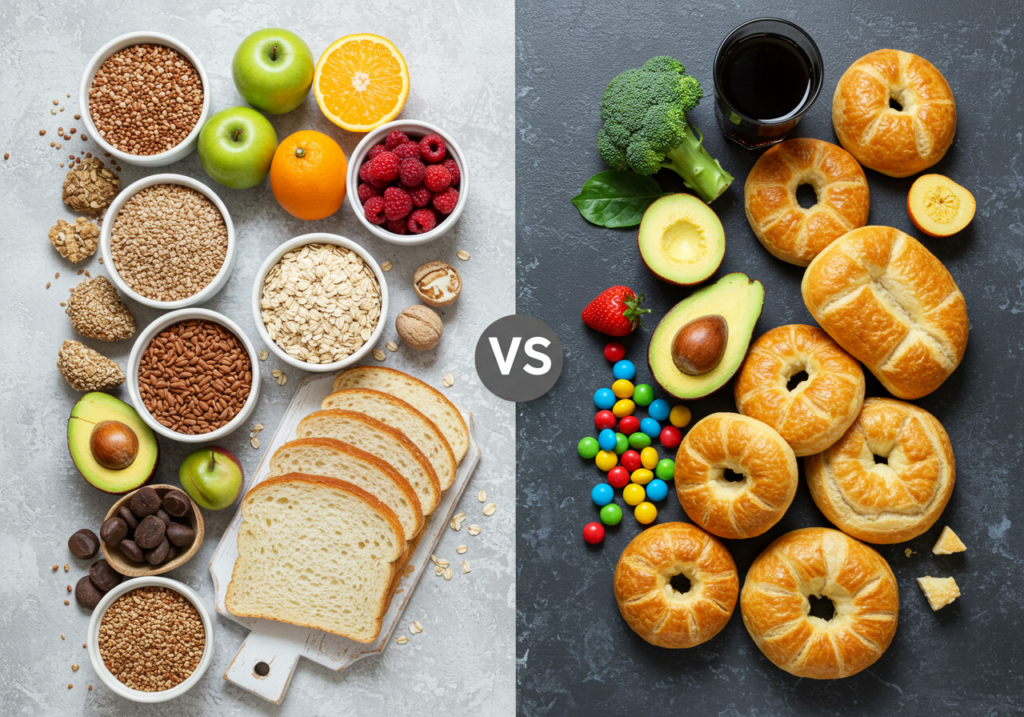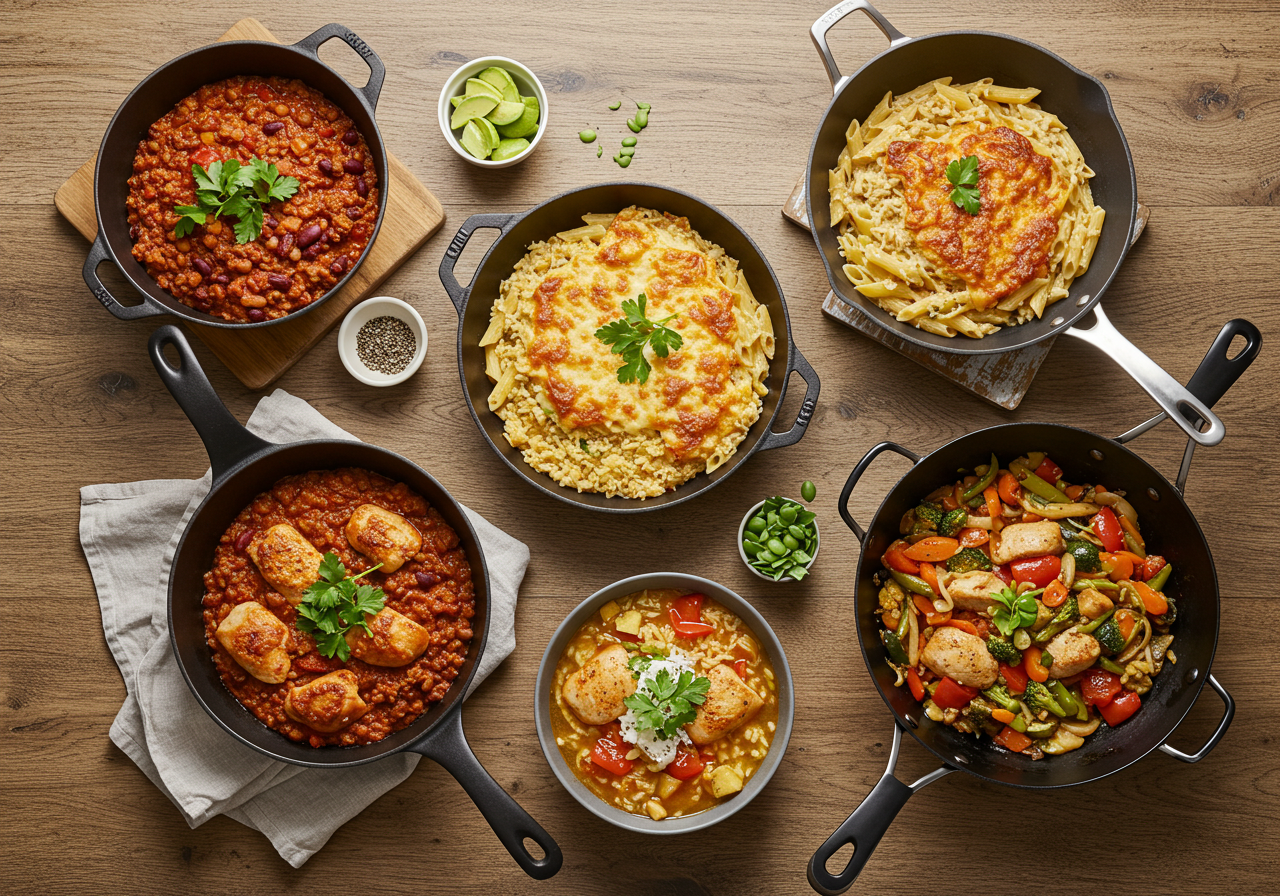Few topics in nutrition spark as much debate as carbs. For years, they’ve been painted as the enemy of weight loss and health, with low-carb diets like keto and Atkins gaining massive popularity. But are carbs really as bad as they’ve been made out to be?
The truth is more nuanced. Carbs are not just an important source of energy—they’re also essential for overall health when chosen wisely. Let’s break down the myths and facts about carbs to help you make better food choices.

What Are Carbs Really?
Before we tackle the myths, let’s understand what carbs actually are.
- Carbs (short for carbohydrates) are one of the three main macronutrients, alongside protein and fat.
- They are the body’s primary energy source, broken down into glucose to fuel muscles and the brain.
- Common sources include bread, rice, pasta, fruits, vegetables, beans, and even dairy.
Not all carbs are created equal—some provide lasting energy and nutrients, while others are little more than empty calories.
Myth #1: All Carbs Make You Gain Weight
One of the biggest misconceptions is that all carbs lead to weight gain. In reality, it’s not the carbs themselves but the type and portion that matter.
- Whole carbs (like oats, brown rice, quinoa, and vegetables) provide fiber and keep you full longer.
- Refined carbs (like white bread, sugary cereals, and pastries) spike blood sugar, leading to energy crashes and overeating.
👉 Fact: Eating balanced portions of whole carbs can actually support weight management by curbing cravings.
Myth #2: Low-Carbs Diets Are the Only Way to Lose Weight
While low-carbs diets can help some people shed pounds quickly, they’re not the only option.
- Cutting carbs may lead to short-term weight loss, mostly from water weight and glycogen depletion.
- Long-term success depends more on overall calorie intake, food quality, and lifestyle habits.
- Research shows that moderate carbs, especially from whole foods, can be just as effective for weight loss when combined with balanced nutrition.
👉 Fact: You don’t have to eliminate carbs to lose weight—you just need to choose the right ones.
The Good vs. Bad Carbs
The key to understanding carbs lies in distinguishing between good and bad sources.
- Good Carbs (Complex Carbs):
- Whole grains (brown rice, oats, quinoa)
- Vegetables (broccoli, spinach, sweet potatoes)
- Fruits (berries, apples, bananas)
- Legumes (beans, lentils, chickpeas)
- Whole grains (brown rice, oats, quinoa)
- Bad Carbs (Refined/Processed Carbs):
- White bread, pastries, cookies
- Sugary drinks and candies
- Instant noodles and processed snacks
- White bread, pastries, cookies
👉 Fact: Good carbs are packed with fiber, vitamins, and minerals, while bad carbs often add excess sugar and calories with little nutritional value.
Why Your Body Needs Carbs
Despite what fad diets claim, your body actually thrives on carbs:
- They are the main energy source for physical activity.
- Your brain relies on glucose, a byproduct of carbs, to function properly.
- Many carb-rich foods are high in fiber, which supports digestion and gut health.
- Whole carbs contain essential nutrients like B vitamins, iron, and magnesium.
👉 Fact: Eliminating carbs entirely can lead to fatigue, mood swings, and nutrient deficiencies.
How to Eat Carbs the Right Way
Instead of fearing carbs, focus on balance and smarter choices:
- Choose whole grains over refined ones.
- Pair carbs with protein and healthy fats to stabilize blood sugar.
- Watch portion sizes—too much of any food, even healthy carbs, can lead to weight gain.
- Time your carbs around activity—having them before or after workouts provides energy and aids recovery.
- Limit added sugars and processed carbs that offer little nutrition.



Final Thoughts: The Real Truth About Carbs
So, are carbs the villain they’ve been made out to be? Absolutely not. The truth is that carbs are an essential part of a balanced diet. The real problem lies in the type of carbs we consume and how much.
- Whole, fiber-rich carbs support energy, brain function, and long-term health.
- Processed, refined carbs should be limited since they contribute to weight gain and health issues.
At the end of the day, carbs are not your enemy—they’re fuel. The key is making mindful choices and enjoying them as part of a balanced lifestyle.











Leave a Reply